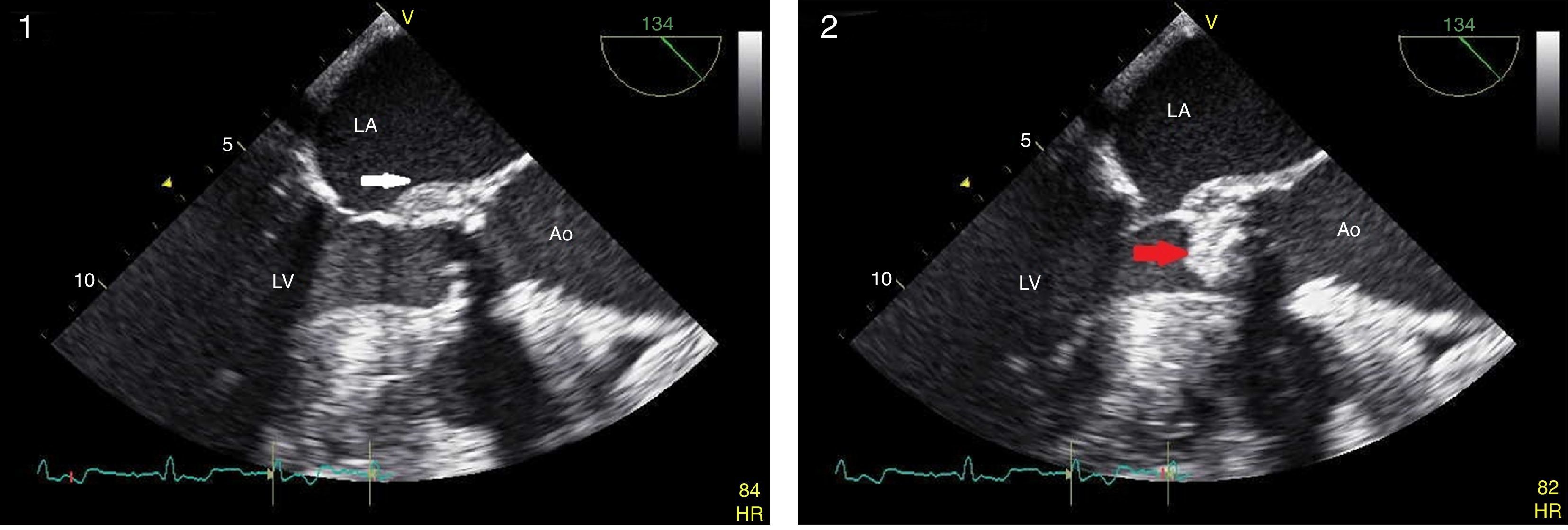Infective endocarditis (IE) is a serious and complex disease with high morbidity and mortality. Heart failure, perivalvular extension and embolic events are well-known complications of IE. By contrast, the association of IE and acute aortic dissection (AAD) is extremely rare.
We present the case of an 83-year-old woman with hypertension, atrial fibrillation and recent hospitalization due to complicated urinary tract infection, who presented in the emergency department due to sudden depression of mental status. On physical examination she presented confusion, fever, a harsh systolic aortic murmur with associated diastolic murmur and mild signs of congestive heart failure. Head computed tomography revealed a recent ischemic area. Transthoracic followed by transesophageal echocardiography revealed multiple sessile masses on the ventricular surface of a calcified bicuspid aortic valve, compatible with vegetations; moderate aortic regurgitation; an image compatible with a perivalvular abscess; and severe (52 mm) dilatation of the ascending aorta, without intimal flap (Figures 1 and 2, Video 1). Transthoracic and transesophageal echocardiograms were repeated on the third day due to development of acute pulmonary edema, and revealed a de novo aortic dissection extending from the aortic root to the brachiocephalic trunk (Figures 3 and 4; Videos 2 and 3), and a fistula from the aortic root to the right ventricle (Videos 4 and 5). The patient was referred immediately for cardiac surgery but considered unsuitable due to mental status; her clinical status deteriorated progressively culminating in death.
In this case, the patient presented with severe complications of IE. Associated aortic dissection is uncommon, with few cases described in the literature.
Ethical disclosuresProtection of human and animal subjectsThe authors declare that no experiments were performed on humans or animals for this study.
Confidentiality of dataThe authors declare that no patient data appear in this article.
Right to privacy and informed consentThe authors declare that no patient data appear in this article.
Conflicts of interestThe authors have no conflicts of interest to declare.










